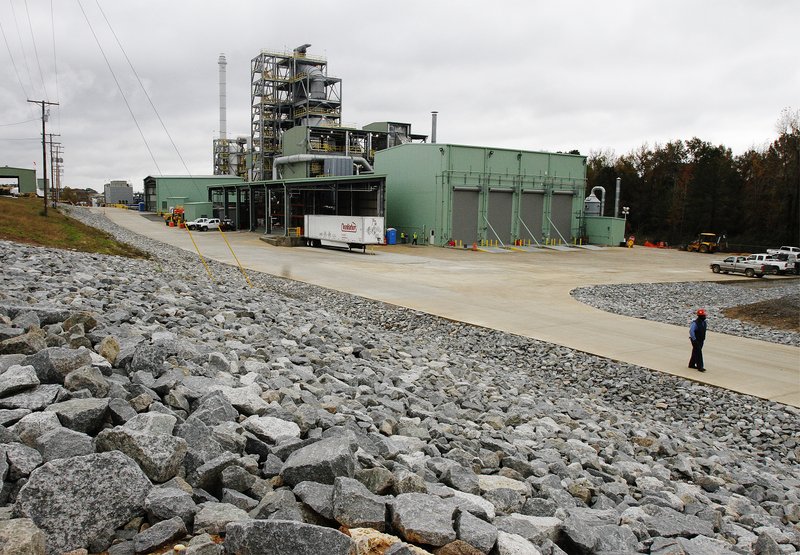Questions, concerns and rumors have swirled about a facility shutdown that is scheduled to begin April 6 at Clean Harbors, an environmental services company that disposes of hazardous waste materials through incineration.
Dan Roblee, general manager of Clean Harbors’s El Dorado facility, said he has spoken with Union County Judge Mike Loftin, state Rep. Matthew Shepherd (R-El Dorado) and other local elected officials about the details of the shutdown, a routine, preventative maintenance project.
“This work is necessary to maintain our high-temperature incineration units and occurs on a regularly scheduled basis, approximately every six months, at each of our incineration trains,” Roblee said. “Since our facility has been deemed an essential services provider by the federal government, it’s critical that we maintain our facility and keep it fully functioning.”
He said the shutdown is slated for April 6 - 14.
Clean Harbors will use several contractors for the project. One hundred contract workers will be onsite during the day and 75 at night.
“The contractors also will be mostly from the El Dorado and Union County area, with most of them having the same commute to the job as our Clean Harbors employees,” Roblee said.
Roblee referred to a rumor, which was reportedly started on social media, that said Clean Harbors planned to bring in 500 contract workers from south Louisiana, including Baton Rouge and New Orleans, which has become a hot-spot in the U.S. for coronavirus (COVID-19) cases.
“That’s simply not true,” Roblee emphasized.
He reiterated that the majority of the contract workers are from local areas, adding that approximately 20 contract workers will come from north Louisiana.
There will also be 16 refractory specialists from Birmingham and an engineering consultant from Little Rock.
The contractors have also been deemed as essential service employees by the state governments of Arkansas and Louisiana; the Federal Emergency Management Agency; and the U.S. Department of Homeland Security, Roblee said.
Additionally, Roblee said each contractor that has been hired for the shutdown has been vetted and verified to meet Clean Harbors’ standards of compliance with recommendations from the Centers for Disease Control and Prevention.
“… all contractors will be screened upon arrival at our facility by trained medical professionals before they are allowed to enter our site,” he explained.
During an El Dorado City Council Finance Committee meeting earlier this week, Council Member Willie McGhee expressed concern about Clean Harbors incinerating COVID-19 materials, noting that the plant is located in Ward 3, which is represented by McGhee (Position 1) and Council Member Andre Rucks (Position 2).
Roblee said that while he has not yet checked to see if such materials have already come through the El Dorado facility for disposal, he has discussed the matter with Clean Harbors’ corporate headquarters in Massachusetts and learned that the local plant is permitted to manage and burn COVID-19 materials if they are shipped to El Dorado for disposal.
Per company procedures, the materials — such as rags, protective equipment, disinfectants, etc. — must be pre-treated and sanitized before being sealed in combustible, plastic containers in sizes of five, 30 or 55 gallons and shipped to El Dorado.
Once the containers arrive at the local Clean Harbors facility, Roblee said they will not be opened and will be directly dropped into incinerating units, or kilns, with temperatures that reach 1,800 - 2,000 degrees Fahrenheit.
“The drums will be pre-packaged to burn, so we can manage them without opening them,” he said. “The virus is already going to be chemically destroyed when those containers arrive and our incineration units will completely destroy the materials.”
“I’m proud of our employees and our South Arkansas community. Clean Harbors appreciates the support and we are proud to serve our community and maintain this essential service for our country,” Roblee said.
